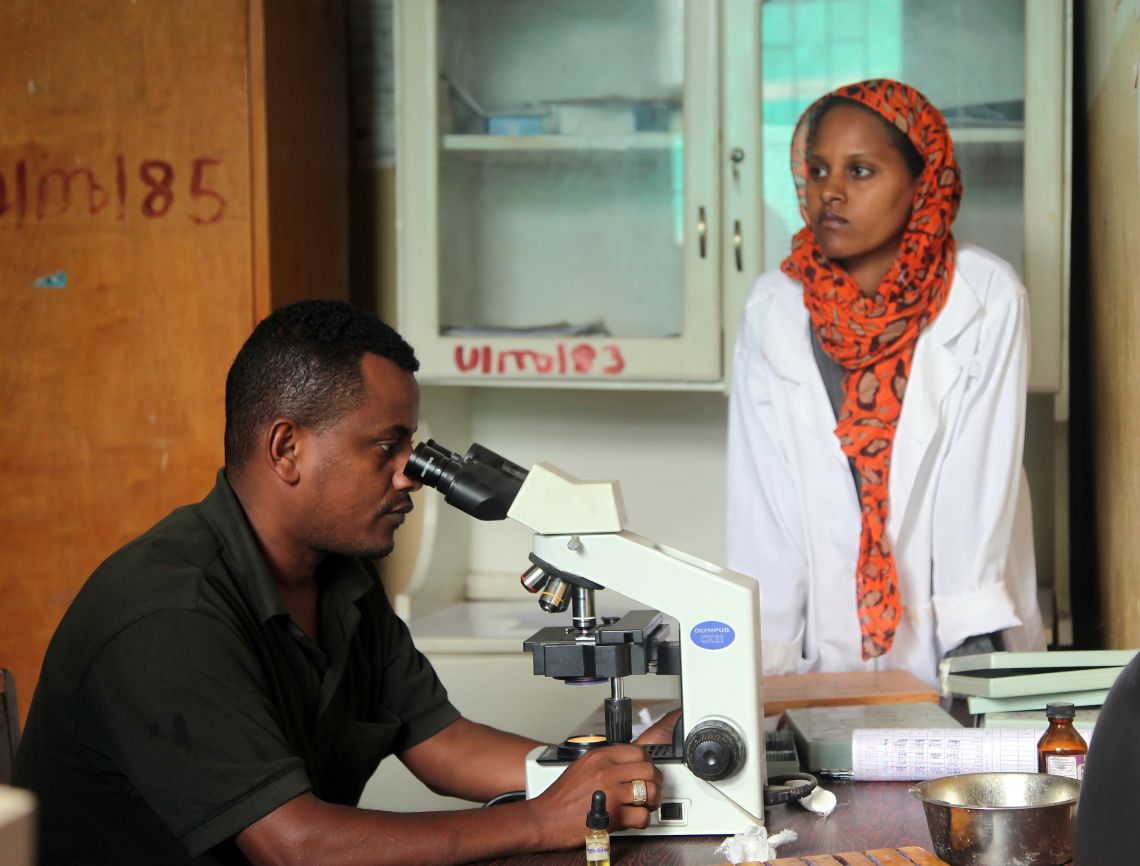Professor Richard Price

Contact information
Podcast interview
Curing Plasmodium vivax malaria

Vivax malaria used to be considered benign but is now recognised as an important cause of morbidity and mortality. Resistance to chloroquine (given to treat the parasite blood stage) is growing and ACT (artemisinin-based combination therapy) is becoming common treatment for vivax malaria. New drugs and better public health strategies can help elimination targets, anticipated for 2030.
Research groups
Richard Price
Professor of Tropical Medicine
Vivax malaria
The main focus of our translational research programme is to improve the diagnosis and management of vivax malaria. To achieve this we are working with in malaria endemic countries across the Asia-Pacific region and Horn of Africa to:
- optimise the safe and effective radical cure of vivax malaria,
- improve the molecular surveillance of drug resistant malaria
- define the morbidity and mortality of vivax malaria
- evaluate the impact and cost effectiveness of novel treatment and malaria control activities.
The programme is being conducted in collaboration with the Mahidol Oxford Research Unit (MORU) in Thailand and the Menzies School of Health Research (MSHR) in Darwin.
I am head of the clinical module of the World Wide Antimalarial Resistance Network (WWARN). Between 2010-2020 he established co-chair the Vivax Working Group of the Asia-Pacific Malaria Elimination Network (APMEN).
CURRENT PROJECTS:
- Clinical trials and implementation studies of different primaquine regimens
- Field testing novel G6PD diagnostics
- Mapping populations at risk of malaria and drug induced haemolysis
- Determining the molecular basis of chloroquine resistant P. vivax
- Individual patient data metanalyses of antimalarial efficacy studies
Recent publications
-
Systems approach identifies monocyte imbalance in symptomatic and asymptomatic P. vivax malaria.
Journal article
Studniberg SI. et al, (2025), Mol Syst Biol
-
Microhaplotype deep sequencing assays to capture Plasmodium vivax infection lineages.
Journal article
Kleinecke M. et al, (2025), Nat Commun, 16
-
High daily dose Short COurse PrimaquinE after G6PD testing for the radical cure of Plasmodium vivax malaria in Indonesia and Papua New Guinea: the SCOPE implementation study protocol
Journal article
Poespoprodjo JR. et al, (2025), BMC Infectious Diseases, 25
-
Pf8: an open dataset of Plasmodium falciparum genome variation in 33,325 worldwide samples
Journal article
Abdel Hamid MM. et al, (2025), Wellcome Open Research, 10, 325 - 325
-
Rapid detection of G6PD deficiency SNPs using a novel amplicon-based MinION Sequencing Assay.
Preprint
Tacoli C. et al, (2025)
-
Enhanced data quality to improve malaria surveillance in Papua, Indonesia
Journal article
Fransisca L. et al, (2025), Malaria Journal, 24






